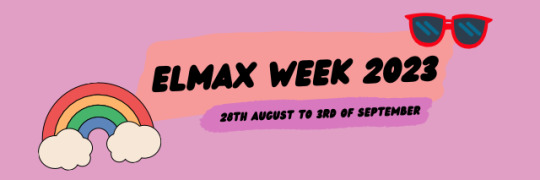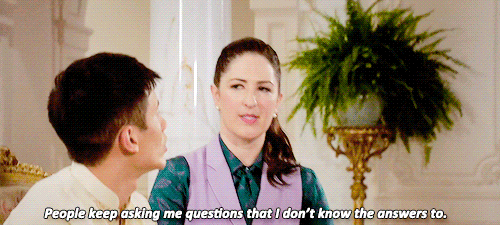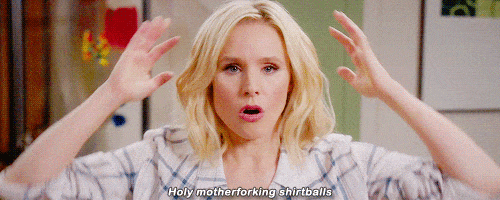#i (as in arian) am going to complete maybe two writing prompts
Text

Elmax Week begins in eleven days (see what i did there, i am so funny haha) ! So excited to see what you guys have planned, for this ! Reblog this post with how many prompts and what prompts you are planning to do and your progress on them :D
#elmax#elmaxweek2023#elmax nation#elmax stranger things#i (as in arian) am going to complete maybe two writing prompts#the rink-o-mania one and the post comatose#i might just do another one but that’s unlikely#i was actually going to do every single day but unfortunately my exams has been squeezed into the last week of august for no reason#i am a quarter in the rink-o-mania one and i have the second fic plotted down!
35 notes
·
View notes
Note
you said something last night about the good place and the incantation, and I don't know what that means but I would very much like to if you can explain it.
::claps hands::
Necessary throat clearing I: I do not think Christianity is the thesis statement of The Good Place; Mike Schur has been extremely clear this story is not an argument for a particular philosophy. I’m not arguing that anything about the show is particularly religious, but rather that there are some natural analogues (from my point of view). The show is about philosophy, which has a natural overlap with theology at large. I’m not a pastor person, but I do have the same education as one. I’m also trained to look closely at narrative “texts.” Thus, here we are.

Back in 2012, Helen Sword wrote about nominalization – she coined the name zombie words because it’s easier to remember – which is when you take an adjective (implacable) or a verb (calibrate) or even another noun (crony) and add a suffix like ity, tion or ism. Think: implacability, calibration, cronyism, heteronormativity, etc.
Academics, scientists, - and philosophers/theologians eat nominalization for breakfast. They litter their writing with them. At best – nominalization help us put a name to big, complex ideas, and at worst it can be a tripping hazard to communicating with clarity. Sword cites a pretty famous essay by George Orwell Politics and the English Language, written in 1946.
Orwell warns how language isn’t just political in its content but in its form as well. He quotes a passage from the Bible, Ecclesiastes 9:11
I returned and saw under the sun, that the race is not to the swift, nor the battle to the strong, neither yet bread to the wise, nor yet riches to men of understanding, nor yet favour to men of skill; but time and chance happeneth to them all.
Then Orwell wrote a modern version:
Objective considerations of contemporary phenomena compel the conclusion that success or failure in competitive activities exhibits no tendency to be commensurate with innate capacity, but that a considerable element of the unpredictable must invariably be taken into account.
Sword and Orwell argue that concrete language – that tethered to our five senses – is clearer. It endures, evocates, and energizes your audience. Nominalization has its uses, but should be used sparingly when communication – always a two-way street – is the goal. Cluttering our language with these zombie words is the best strategy for anyone who wants to talk, but cares very little about being heard.
I think The Good Place is an example of a story told in concrete language - though its a visual medium, and it is very much on purpose. But I’ll get to that...
First, let’s define the term Incarnation...Simply put, it is a theological assertion that Jesus Christ was both fully God and fully human. It is one of those key beliefs - take it away and whatever you’ve got isn’t Christian; This isn’t one of those down in the weeds, who cares? theological arguments.
Second, let’s talk about why the points system on The Good Place is fundamentally broken…
Remember Chidi’s breakdown earlier in the season with the peeps chili?

In that scene, he describes 3 main approaches in the last 2500 years of western philosophy to this question: how to live an ethical life?
· Virtue Ethics – (think Aristotle) There are certain virtues of the mind like courage, generosity, etc. One should develop oneself in accordance to those virtues. The emphasis is on human reason or our minds – what do I do with my mind
· Consequentialism - Is it right or is it wrong? is based on the consequences of that action - how much utility/good vs. how much pain/bad? The emphasis is on the result instead of the action - what happens to your [neighbor’s] body?
· Deontology - There are strict rules that everyone must adhere to in a functioning society; an ethical life is identifying & following those rules. The emphasis is on the action instead of the result - what do I do with my body?
(::screeches:: I’m VASTLY over-simplifying here.)
Each philosophical system Chidi outlines makes a priority choice with regards to my mind, my body, and your body. Each takes the mind, body, and other’s bodies into account, but each prioritizes one over the other as the loci – or starting place/lens - from which to answer the question, how to live an ethical life?
The Good Place uses Doug Forcett as the prime example this dynamic because he’s as close to a control group you can have in the story. He is the story-telling embodiment of this tension:
In any ethical system you cannot separate your mind (what you think/believe) from your body (your actions in the real world) or from the bodies of others (the consequences of those actions).
Please hear what I’m not saying - that these ethical systems are wrong. I am simply saying that none of them completely account for how three parts are inter-connected.
Doug’s attempt to live an ethical life is endlessly, hopelessly tangled in this ethical web. This is the catalyst for Michael to go to Accounting because he thinks the Bad Place is rigging the points system. But when that proves to be untrue – he jumps to another theory. He makes the case to the Judge that that modern life is so vastly complicated and fraught with moral quandaries that living any sort of morally positive life is impossible.
Yet, it’s total hubris to think our way of life is worse-better than the human condition 500+ years ago. It’s a fetishization of a single era. Even if we’re arguing that that era damns everyone. It simplifies and romanticizes the past and that is very dangerous because that sentimentality lets us lie to ourselves. We can excuse all kinds of human behavior by slapping the term modernity on it; our world made us do it. It’s a great example of how nominalization can be dangerous.
I’m confident the show knows this and Michael’s current theory will be proven to be as hollow as the ‘Bad Place is rigging it’ theory. Michael does not know how but he knows with the core of his demon-being that the merit-based “points” system is fundamentally broken.

Let’s talk about systems & power for a moment…
Last year I did some training with the Race Equity Institute for work. They started by talking about systems. We can all name systems: weather and water systems, the systems of the body and universe, economic and political ones, etc. Social systems – inter-connected people – are maybe the messiest systems there are.
Two important characteristics of any system are 1) the “parts” of the system are inter-connected and 2) the system self-perpetuates, i.e. the power lies in the inter-connectedness of the parts. Your mind & body – as well as the bodies of others – are part of an ethical system. They are inter-connected and there is power in that inter-connectedness.
An ethical life is always bound up in the systems to which we belong, and those systems create mindsets. Yet, the power of those systems is not in the nominalization: racism, sexism, classcism, etc. we use to describe them. Power lies in the inter-connectedness of the parts – here, people. The last two years of the Angry Cheeto have made that particularly plain, I think.
Enter Big Noodle & the Incarnation
Jason is the character version of from the mouths of babes – his point with Big Noodle is you can’t judge what you don’t know.
So, the Judge goes down to Earth.
That is what prompted me to think about The Good Place and the Incarnation.
Remember, the Incarnation is a theological assertion who God is, specifically who Jesus Christ is. The church spent a long time arguing about it (like in the hundreds of years) and they did because how do you define God? In the world of The Good Place, where we’re dealing with philosophy and not Christian theology, that question is analogous to how to live an ethical life? because who God is – in the Judeo-Christian tradition – is the starting place for what the meaning of human life is.
(Here I’m going to delve into a little Christian theology, but I PROMISE I have a reason.)
Did God create Jesus in the same way God created trees and elephants and the stars? Was Jesus the highest created being of God? A sort-of demi-god? A movement called Arianism argued this, but in the long run it was rejected because it didn’t fit with the Bible. There were a lot of opinions and theories – I’m skimming over A LOT, but in the end the church basically punted.
The Good Place took Michael through a conversion-like storyline in Season 2 when he became a demon who cares for others – his humans & Janet. Since then he has pursued the question of how behind the points system. He knows it shouldn’t have been possible for his humans to get better after they died, which undermines the whole argument for an earth-bound points system. But they did. If that is true, then the system itself is not the right answer to how to live an ethical life?

Remember: You cannot judge what you do now know.
At the Council of Chalcedon (451), it was decided to define God’s nature by what we know God is rather than what we know God is not. It’s called the Chalcedon formula, and it begins with we confess. In Christian tradition, confession is a different kind of knowing; it is rational, but it is also embodied. One can only confess what one knows because it has be proven to be true in one’s own life. It’s not about having the right answers, but saying - to me this is true.
The formula states that Jesus is God and Jesus is human, two natures without confusion, and how that exists we don’t entirely understand. It is a union of the human and divine that is not a blending of the two to make one, like the combination of two primary colors to create a new one. Jesus’ birth, life, and death is not somehow less human because of his divinity, but what comes next – the whole rising from the dead thing – definitely is divine. Even writing that sentence makes me itch a little because the Incarnation is an assertion that you can’t divide Christ’s biography into part 1: human, part 2: divine. Rather, the body of Christ – the very nature of who he was, is, and will be – is both human and divine.
The Power of Both/And

Think about this: what confirmation do we have there is a Good Place?
The only characters we’ve seen that come from there are the not-people from The Book of Dougs. Were they angels? Anti-demons? I don’t think we’ve been given a definition. Why should we trust they are what we’re told they are the first go-round? We already know characters are not always who we’re told they are. Further, the judge doesn’t reside in the Good Place. The accountants don’t. We have a door to the Good Place that only non-humans can pass through. Okay, but have we seen anyone pass through it? Assuming there is a Good Place assumes that all the other kinds of characters exist to be part of the machinery that is the human after-life. Demons torture. The judge judges. The accountants tally. Janets help.
You’ve got a system of interconnected parts: humans, demons, Janets, needlenoggles, a judge, accountants, etc., and you’ve got this points system in which they all play some part. What Schur & co. have quietly been doing with Team Cockroach is showing how these different types of beings are all changing: Janet falling in love, Michael’s conversion to caring for others, and the humans changing after they died. None of these things are supposed to be happening in that system.
I wonder if Schur & co. are playing another sleight of hand in their story telling akin to the Season 1 reveal. What if the world of The Good Place isn’t either you belong (not just humans either, but all kinds of creatures) to the GOOD PLACE or the BAD PLACE. What if - instead - they are making an argument that how to live an ethical life is not about getting the answer to the question, but about seeing the world (here the story-world of The Good Place) in new, transformative ways.
In that REI training, the facilitators asked everyone if you were proud to be an American. This was the beginning of the training. It was one of those questions that you don’t know the right answer to, but you do know what the wrong answers might be. No one said anything. The trainers started listing things they like about living in America: public education, running water, our national parks, etc., and then they listed things they didn’t like: history of slavery, the Flint water crisis, etc. They said for the work we were going to be doing in our training they wanted us to resist language of either/or – you are either a racist or you are not. You either love America or you don’t. Rather, they said, embrace the power in both/and language. You can both love the systems in which you live and work, and you can recognize their brokenness, pain, and hurt. You can be both angry at and thankful for your community. That, they said, is how we transform ourselves and our communities.
The both/and shows up in the Incarnation too – it is a theological assertion that Jesus was BOTH human AND divine. Jesus’ very body rejects that the laws of nature are either/or. Either them or me. Either good or bad. Either/or is a way of seeing the world that is human – we do it as naturally as breathing - but it is not the only way to see. There are more humane ways to exist.
I don’t know what story Schur & co. are telling, but I struggle to see where they are going to land if there is a Good Place without turning the story into a confession of a particular ethical or religious system. Because if there is a Good Place you’ve created an either/or world that needs a system for how it works.
Rather, they’ve spent a lot of narrative time doing exactly what the church did when they tried to define God – a lot of guesses that tell you want God is not, but don’t clarify what God is. Michael & co. know that Doug Forcett didn’t get enough points despite his ascetic-like life. They know that demons and humans and Janets can change in ways they are not supposed to be able to. They know that they love and care about each other. They know what they don’t know.
It is counter-intutive, but the best way to communicate big, complex ideas is in concrete, small language. It’s language that is incarnated. The Good Place is a half-hour sitcom about philosophy, and it does that by telling small, incarnated stories. You’ve got 4 humans and they died. What happens next?
But you also have a demon and a Janet. You have a system that appears to not be working. You have two places – good and bad – but actually you don’t. So already that either/or dichotomy is breaking down. There’s the Medium Place and despite the room temperature beer and medium snacks, I wonder if the fundamental geography of the show is a red herring. What if the demons and Janets and all the other kinds of beings are just as caught up in a system of either/or that is patently false? Without a Good Place, the geography of the world isn’t good or bad. It just is. Kind of like our own world. It’s something in between, both joyous and painful. What if the story we’re being told is about how these particular characters – Team Cockroach - challenge and upend a false ethical system in which all creatures in the story are caught?
How to live an ethical life? is a big question that is the wrong question. It posits an either/or world. Human life can be reduced to that, but it is always a reduction based on a lie. We are capable of choosing to see life’s geography - its systems, quandaries, and mysteries - through both/and language. The Christian theology of the Incarnation reminds me that not having all the answers is not only okay, but natural. Life does not occur by knowing the rules and then following them or not. Good living is like good language. It is concrete, small, and embodied. Somehow, it also touches on things bigger than ourselves like love and friendship and the ability to not only change - but transform.
Why would a fictional after-life be any different?
49 notes
·
View notes